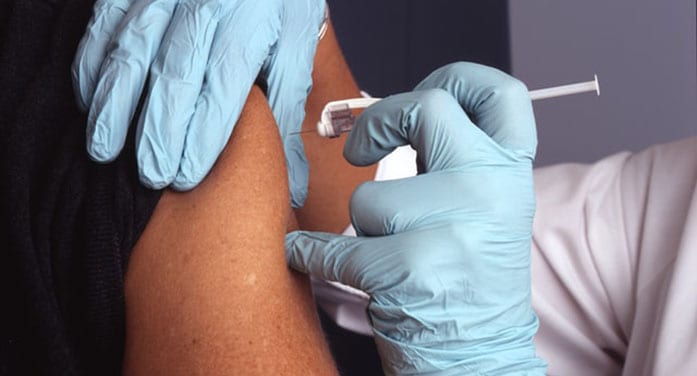A not-for-profit research group with University of Alberta roots is quietly taking its place in the major leagues of global cancer drug testing.
When promising new cancer treatments are ready for trial in humans, researchers from around the world turn to Edmonton-based TRIO (Translational Research in Oncology) to run their clinical trials.
“It may seem like an odd place for a company like this to be based, but we started here and we’ve stayed here,” said CEO Launa Aspeslet, a PhD graduate from the Faculty of Pharmacy and Pharmaceutical Sciences. “There are a lot of brilliant minds that come out of the university, and we do our best to hire and train grads.”
TRIO got its start with an international trial of the now-approved breast cancer drug Taxotere in 1997. Moving on to another breast cancer game-changer – Herceptin – the company is now running 21 clinical trials for breast, lung, ovarian, liver and gastrointestinal cancer treatments at more than 500 hospitals and cancer centres in 20 countries.
TRIO employs more than 200 people, with the head office in Edmonton, branches in Paris and Montevideo, and consultants in Korea, Russia, Italy and elsewhere.
“TRIO has gone from success to success,” said John Mackey, oncology professor in the Faculty of Medicine & Dentistry and director of clinical trials at the Cross Cancer Institute. Mackey helped launch the company but is no longer directly involved.
“It started as a breast cancer international research group and has evolved into so much more,” Mackey said. “They’re expanding, launching new trials and keeping local people employed with IT and other jobs.”
TRIO runs the trials from start to finish – framing the research questions, finding investigators with the right kind of patients, confirming and analyzing data as it comes in, navigating ethics and regulatory protocols, and monitoring patient safety.
The company is actively supported by academics and key cancer opinion leaders from around the world, who volunteer for the board and the scientific committee, and who follow a unique vetting process to choose projects. In many cases, drugs that come to TRIO are first screened against a panel of more than 600 human cancer cell lines in the UCLA laboratory of renowned American oncologist Dennis Slamon. Slamon, who is chairman and executive director of TRIO, discovered that one in five breast cancers contains a gene (HER2+) that can be targeted by the drug Herceptin.
“Before Herceptin, we were treating breast cancer with a one-size-fits-all approach, but we saw that some patients did well while others did less well with our standard treatments,” Slamon said. “That’s when we realized breast cancer is not just one disease, but a spectrum of diseases.”
“Now we know that other types of cancers have subtypes too,” Slamon said. “It’s a matter of sticking to the data and following the leads.”
Because TRIO is not affiliated with any one pharmaceutical company or research institution, it can focus on the most promising drugs, Slamon said.
“We don’t do just any cancer trial that comes to us,” said Aspeslet, who began her career at Isotechnika, where former U of A pharmacy professor Robert Foster developed voclosporin, recently approved by the U.S. Food and Drug Administration for the treatment of lupus nephritis.
“We only do trials with really strong science behind them – the ones that the investigators believe are going to make a real difference to patients,” she said.
Aspeslet gives back to the U of A community where she trained by volunteering as a mentor through both the ThresholdImpact Venture Mentoring Service for alumni businesses and the Career Mentoring Program for students.
One of Aspeslet’s student mentees was Ana Anoveros, who was a PhD candidate studying muscle wasting in cancer patients as part of Vera Mazurak’s lab in the Faculty of Agricultural, Life & Environmental Sciences. Originally trained as a certified dietitian in Mexico, Anoveros now works verifying data for TRIO’s clinical trials. She credits her time at the U of A for teaching her critical thinking skills and the value of high-quality research.
“What I learned during my graduate studies is that in research you are not only collecting data, you are working in a very human business,” she said. “We make sure the data that we collect is reliable and, at the same time, we take care of the safety of the patients.
“I feel that I’m contributing to society in a tangible way,” Anoveros said.
While COVID-19 may have slowed research in other fields, and safety protocols mean that some of TRIO’s hospital monitoring is now done electronically rather than in-person, she said, “Cancer doesn’t slow down just because of COVID, and our trials continue at the same speed.”
While TRIO runs trials for researchers based all over the world, Aspeslet said they encourage inclusion of Edmonton’s Cross Cancer Institute as a trial site, which benefits local patients. This means that local breast cancer patients, for example, continue to have access to more clinical trials on a per capita basis than at any other cancer centre in Canada, according to Mackey.
“It means that our oncologists have more tools in their toolbox, and local patients have an opportunity to get treatments before they’re more widely available,” Aspeslet pointed out.
“Some of our trials are for patients who have no other treatment options – this gives them an option.”
| By Gillian Rutherford for Troy Media
This article was submitted by the University of Alberta’s Folio online magazine. Folio is a Troy Media![]() Editorial Content Provider Partner.
Editorial Content Provider Partner.
The views, opinions and positions expressed by columnists and contributors are the authors’ alone. They do not inherently or expressly reflect the views, opinions and/or positions of our publication.





